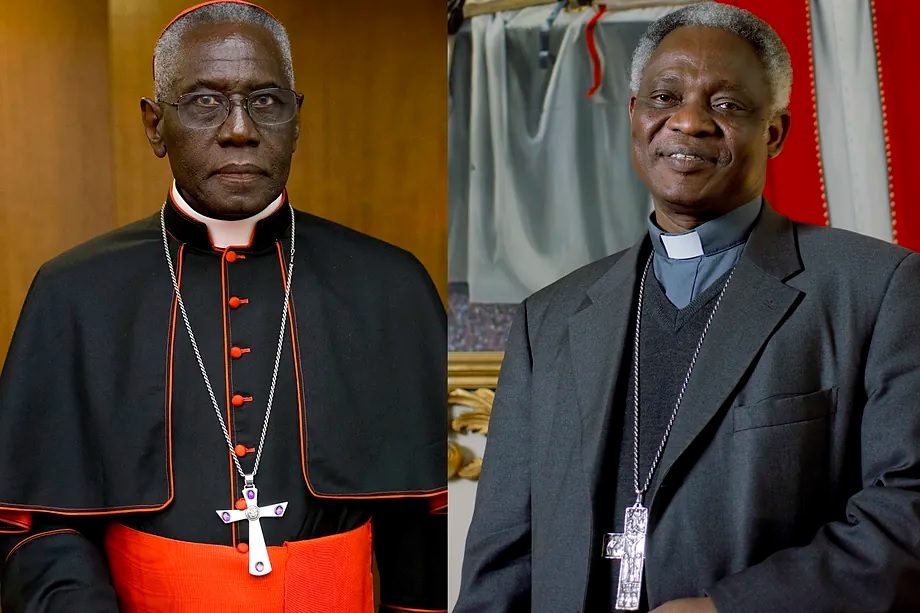While the Church is losing influence in Europe and other parts of the world, there is a whole continent where it continues to grow: Africa. 20% of the 1.4 billion Catholics are African, and the idea of a black Pope succeeding the first Latin American Pope is gaining strength in the prelude to the conclave.
"If the Pope aspires to be a global authority, he needs to come from a global church," warns Miles Pattenden, a historian of the Catholic Church at the University of Oxford, who emphasizes, however, how Catholicism in Africa has a traditionalist hue that may weigh against the election of a black Pope at this time.
According to the Liber Pontificalis, the first Pope "native of Africa" was Victor I, the fourteenth Pontiff, who served between the years 189 and 198 and was also the first to assert the existence of a moral magisterium of the bishopric of Rome over the other bishoprics. In the global Rome of the 21st century, with the most geographically and culturally diverse conclave in history, the challenge is precisely to lean on the periphery.
"Our strength is diversity", proclaims Cardinal Lawrence (Ralph Fiennes) in the movie Conclave, where the black cardinal Joshua Adeyemi (played by Tanzanian actor Lucian Msamati) takes the lead in the third round of voting, until he is ousted by the cunning of one of his rivals who exposes a "sin" from his youth.
The possibility of a black Pope is increasingly closer, and among all African contenders, one stands out especially for his charisma: Cardinal Peter Turkson. His name was already mentioned in 2013, but he himself admitted then that he was not prepared and that the election cannot be based on statistics.
Turkson already made history as the first Ghanaian to be appointed cardinal, in 2003 by John Paul II. The fourth of 10 children, his father worked in a mine and his mother sold vegetables in a market. He was a guitarist in a funk band before choosing the spiritual path, and his overflowing energy is precisely one of his characteristics.
He went through the seminary in Ghana and New York, and completed his biblical studies in Rome, giving him a global dimension. Although considered conservative on social issues, he is one of the few African cardinals who has dared to break the taboo and say that homosexuality (still criminalized in many countries on the continent) "should not be considered an offense." He has worked on issues such as climate change and social justice, although in 2012 he was criticized for warning against "the spread of Islam in Europe" (he later apologized).
Guinean Cardinal Robert Sarah, however, does not hesitate to condemn "Islamic fanaticism" and to launch his anathemas against homosexuality and abortion. Sarah is indeed one of the most conservative cardinals who will participate in the conclave, a supporter of the Tridentine Mass prior to the Second Vatican Council.
"We need worshipers! The world is dying for lack of worshipers," declared Cardinal Sarah at the presentation in Milan of his book Does God Exist? The cry of the man who asks for salvation. "The loss of the religious value of kneeling and the sense of worshiping God is the origin of all the fires and crises that shake the world and the Church," was the diagnosis of this influential African cardinal, who, however, is burdened by his advanced age (79 years, right at the limit to participate in the conclave).
Congolese Fridolin Ambongo Besungu (65 years) is another rising African cardinal. He has been Archbishop of Kinshasa for the last seven years and was appointed cardinal by Pope Francis. He is also considered conservative and has gone so far as to say that same-sex unions "contradict cultural norms and are inherently evil."
Although Catholicism is the majority religion in Congo, Christians have suffered persecutions and massacres like those carried out this year by the Allied Democratic Forces, a local branch of the Islamic State, when 30 civilians were killed with machetes. Ambongo has been criticized by traditionalists for advocating religious plurality despite the current context of violence in the country: "Let Protestants be Protestants and let Muslims be Muslims. We have to work with them. But let each maintain their own identity."
